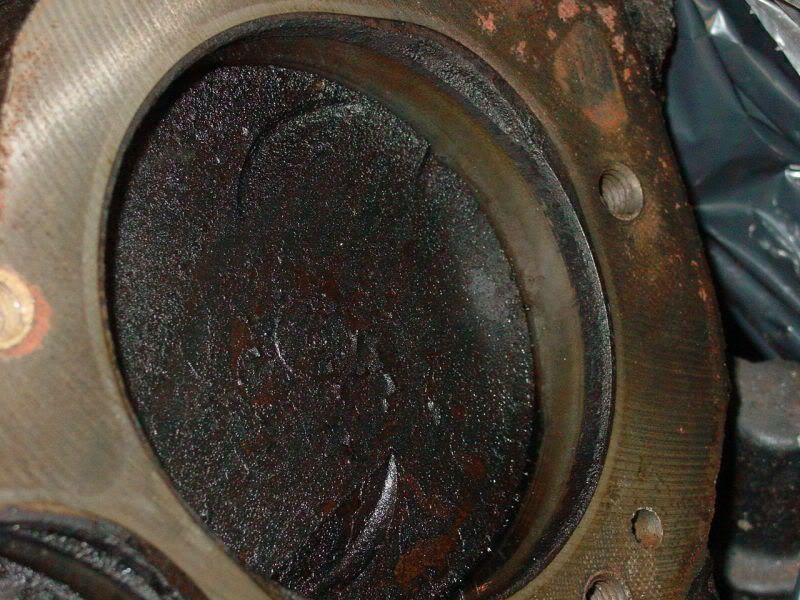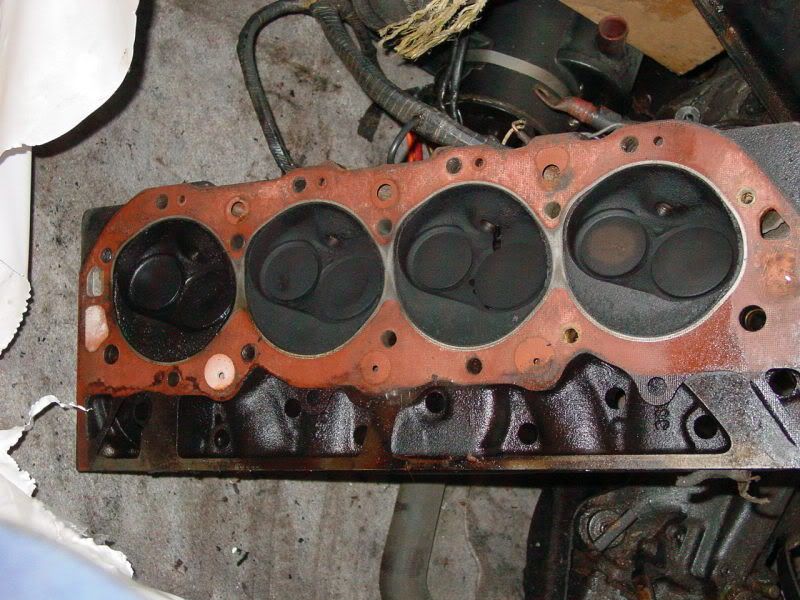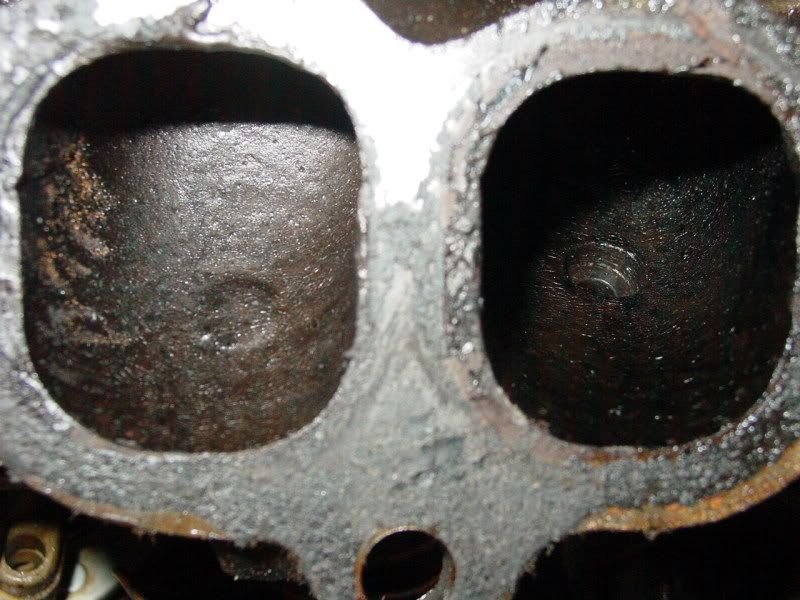Page 1 of 1
Original FG Tanks
Posted: Jul 15th, '09, 18:42
by Jareb
Will ALL original 31 FG tanks from the 60's/70's eventually go bad with ethanol or do some survive. If some survive, why?
Thanks
John
Posted: Jul 15th, '09, 19:02
by In Memory Walter K
Patrick might be the guy to give you the technical reason, but as I understand it, any tank pre 1980 will be affected by the contact with ethanol. After that date, there's a chance you might be ok, but in all cases, hoses, vent lines and gaskets should be changed to an ethanol compatible material. I would suspect that after we've all changed our tanks, lines and in some cases engines, they'll decide that Ethanol was a bad idea...but not before we've pissed off all that money. It's part of the "stimulus plan". Walter
Posted: Jul 16th, '09, 08:26
by Jareb
Well, I guess sooner or later the consensus is that they will fail. Will a good fuel filter system protect the motor? If the filters are watched frequently and changed...can this avoid the damage to the engines?
Posted: Jul 16th, '09, 08:55
by CaptPatrick
Will a good fuel filter system protect the motor?
Nope.... The polyester resin that gets absorbed into the alcohol/gasoline is in chemical solution, not suspension. The now polyester/alcohol/gasoline cocktail will easily pass through even the finest engine filter.
After it enters the running engine, the alcohol/gasoline burn but the polyester only melts into a goo and coats every thing it touches. When the engine is shut down and cools off, the goo reverts to a semi solid. Each time the engine is restarted from cold, the burned polyester acts like an adhesive, trying to hold back valves and other moving parts that it coats. The main mechanical result is bent push rods and gummed up carbs.
Posted: Jul 16th, '09, 09:31
by Jareb
Capt Pat,
If the tank has already suffered some damage, can it be cleaned satisfactorily and then be used with ethanol free fuel? Can I assume the only way to tell if the tank is damaged is to remove the inspection plate and actually look into the tank with a light?
John
Posted: Jul 16th, '09, 09:47
by CaptPatrick
John,
It all depends on how much ethanol laced fuel has been in the tank and how long it set there.
There is little likelyhood that you can determine much by just a visual inspection of the tank in the early stages. A chemical analysis is the only way to get a somewhat difinitive answer.
If the damage is minimal, any remaining ethanol laced fuel is removed and disposed of, and only pure gasoline is used from there on, there should be no further degredation of the resin.
Inspection of the carb, valve train, and sediment bowl of a Racor style filter will give you a more reliable visual indicator of current conditions. But a visual inspection and some scrapings from the lower side walls of the tank can still be helpful.
Br,
Patrick
Posted: Nov 3rd, '09, 21:45
by scenarioL113
I can tell anyone that from recent experience, that you probably cannot grasp what ethanol does to the tank until you see it first hand.
The gummy deposits that destroy your carbs and valvetrains is actually a mix of the ethanol and the fibergalss that it has digested and passed into the engine.
After I removed my destroyed tank and cutting it up, I had gummy stuff on my shoes arms and hands that was very comparably to pine tar!
Thats right PINE TAR!
That is what will pass through your engines.
Its not really ethanol its the chemical reaction ethanol has with the structure of the fuel tank.
Its unbelievable the damage it does. My tank was 100% destroyed and not one square inch of the gelcoat was left, even on the ceiling of the tank, so the vapors are probable just as bad.
Posted: Dec 3rd, '09, 10:54
by Harv
Posted: Dec 3rd, '09, 12:16
by dougl33
I've always wondered why only 1 motor would go bad? Since there's only tank, wouldn't you think both motors would go at the same time?
Posted: Dec 3rd, '09, 13:10
by Harv
Even though it's from one tank, it's still 2 separate engines.
It's not the same as a pump malfunction or air lock that could affect both engines simultaneously.
The boat was repowered. Ironically, the engines were not done at the same time.
This happened to be one year older than my starboard motor.
This one was a 1988, the starboard was 1989.
After this engine went, we used fresh gas from a separate container to run through the starboard engine.
The thinking behind this was since the ethanol is a solvent, that fresh uncontaminated gas might help clean it out.
Hopefully it was enough to save the engine, but I have removed it from the boat as well.
It was still in strong running condition.
Posted: Dec 3rd, '09, 13:39
by In Memory Walter K
If I am not mistaken, Randall tried Acetone to dissolve that gunk and covered his cockpit with the tar like substance that blew out of his open sparkplug holes when he cranked it over. Perhaps he'll chime in with the specifics.
Posted: Dec 3rd, '09, 16:01
by dougl33
Harv,
I understand its 2 separate engines, but if the crap is passing through one fuel line/fuel filter, why would it not go through the other? It doesn't make sense. You're probably right that it wouldn't be simultaneously, but it would have to happen pretty quickly. I mean its the same tank, the same kind of fuel line, etc...
What made your starboard engine so lucky?
Posted: Dec 3rd, '09, 16:55
by In Memory Walter K
Each engine has it's own speed of heat absorption and disbursement, simply because they ARE different pieces of metal, made at different times. It's just a matter of time before the valves get glued shut on cooling on the second one. If Herb would take his second still functioning engine apart, I'm pretty sure he'd find a non-perfect situation whose time is coming. I kind of liken it to two guys of the same age, height, weight and with the same Cholesterol numbers. If one gets a heart attack it doesn't mean the second one will have one on the same day. On the other hand, I wouldn't recommend he compete in a marathon either.
Posted: Dec 3rd, '09, 19:26
by Harv
Who's Herb??
Posted: Dec 3rd, '09, 19:29
by Harv
Doug,
One item that may shed some light is the fact that the older (port) engine, also had lower compression numbers than the starboard engine. That being the case, maybe she didn't burn as efficiently as the other eingine. Like I first said, it was a year older. And as Walt said, There's no guarantee that the starboard engine isn't going to crap out without a complete rebuild. I just know what the mechanic told me prior to pulling it from the boat.
Posted: Dec 4th, '09, 00:30
by In Memory Walter K
Harv- That's the second time I've done that! I'm spooking myself. My apologies!
Posted: Dec 10th, '09, 12:59
by Raybo Marine NY
walterk wrote:Patrick might be the guy to give you the technical reason, but as I understand it, any tank pre 1980 will be affected by the contact with ethanol. After that date, there's a chance you might be ok, Walter
A Silver Anniversary Edition came in today with a bad tank, I think some people just get lucky for a period of time, I dont think its a question of if anymore, just a question of when
Posted: Dec 10th, '09, 16:33
by coolair
OK
so what can you do with your old tank, I am pulling mine, and from what i have seen it is still in excelint shape. Could you use it say as a transfer tank. just to move fuel, or would that short amount of time with the ethonal eat it too. IDK i am at a loss, mine seems to be in prefectly good condition.
Posted: Dec 10th, '09, 17:24
by Raybo Marine NY
if you have been using it and its been fine- keep your eye on it, no one can say how long it will last.
I think you are going to find when you remove it, if it removes in one piece, that it is far too heavy and awkward to have any mobile uses
Posted: Dec 10th, '09, 18:24
by In Memory Walter K
It's a perfect tank for someone with a diesel.
Posted: Dec 10th, '09, 22:31
by coolair
Ya, i was joking with my budy abou putting it in his 31 albamarle,
Posted: Jan 3rd, '10, 10:23
by Carl
I had the ethanol attack my Port Engine first. Ran like hell, a back fire followed by a Stuck valve and Bent Pushrod. It wasn't all that long after the Starboard engine started to mimic the first. By the 2nd season it would be either or motor that was bending a Push Rod.
The Good news is I was getting so good at swaping out the pushrods I didn't even have to go back to the dock by the third season.
If I was trolling, just shut the motor with the bent rod, let it cool for a beer or two, make sure I was in a good spot to stop. Pull the running motor out of gear, pull the valve cover, valve train, figure out which rod needed replacing and swap it out. The re-aasemble and continue fishing. I always left the dock with a box of Pushrods.
Moral of the story...
-if one engine is having a problem because of the ethanol...it won't be long till you have a problem with the second.
-if ethanol is eating your tank it will look clean because it is disintergrating.
-don't use your tank with anything related to ethanol...even for short periods of time...it's just not worth it. I was running fine till I got 40 gallons of fuel on an empty tank, within 15-20 minutes I had an engine running like crap and shutting down....its just not worth it.
Carl


